Japan Cuts 2025 - Part Two
Reviews of She Taught Me Serendipity, See You Tomorrow, So Beautiful Wonderful and Lovely, and The Gesuidouz
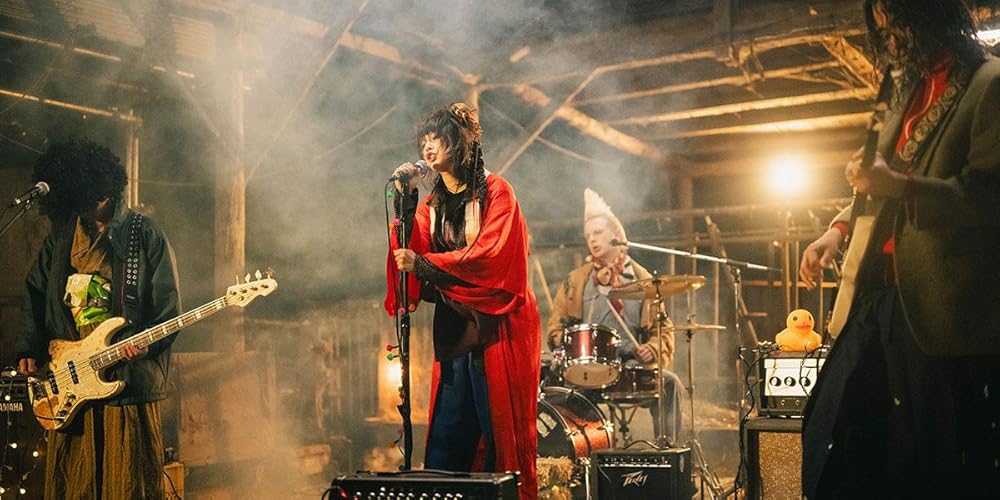
In all my years covering Japan Cuts, I think director Ohku Akiko is my favorite discovery. I caught her Tremble All You Want back at the 2018 edition, and it’s one of the finest examples of a genre that’s come to define the festival for me: slice-of-life films (comic, romantic, and/or melodramatic) about young women struggling to fit into modern society. Movies like: Love and Goodbye and Hawaii, Amiko, Night is Short Walk on Girl, When Morning Comes, I Feel Empty, Plastic, Sayonara Girls, and Kyrie. This year I found four such films, and while it’s no surprise that Ohku’s is my favorite among them, the others, two of which come from the festival’s Next Generation series, are certainly not without promise.
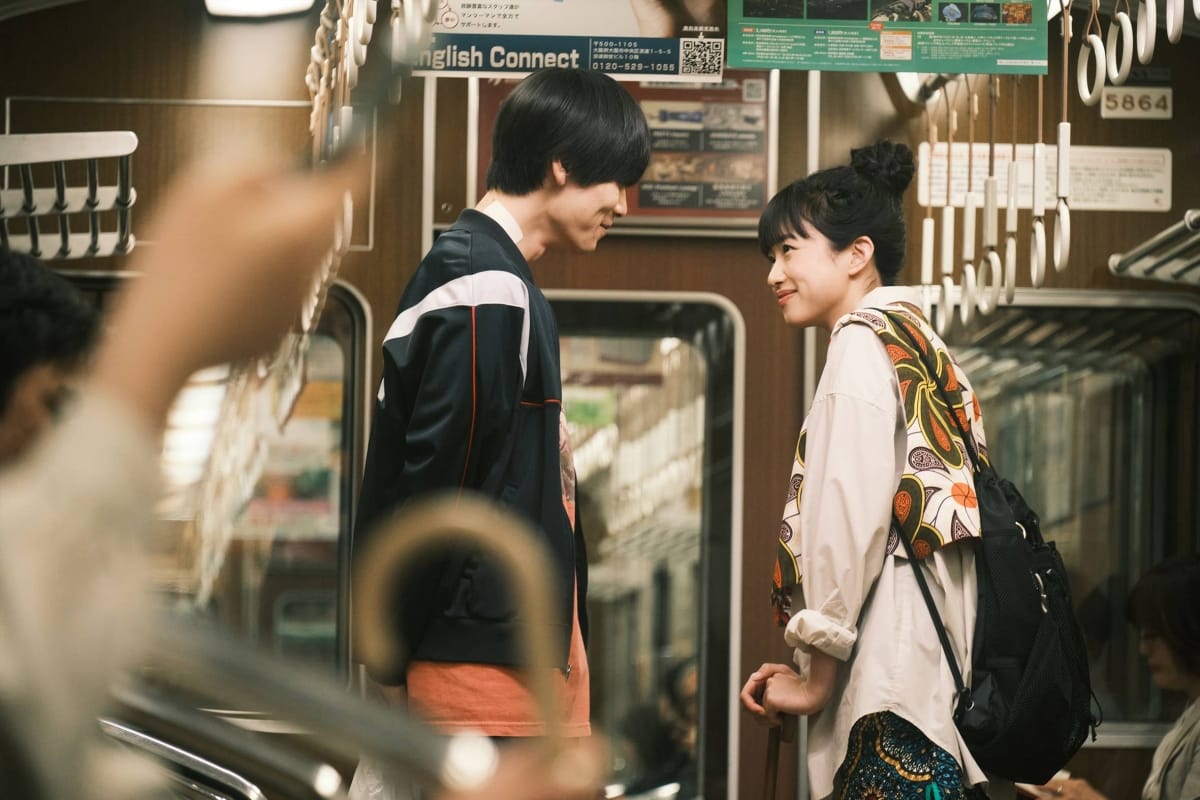
At first, She Taught Me Serendipity seems like a departure for Ohku, in that the main character is a college-aged man, rather than the young adults and middle-aged women of movies like Tremble, Hold Me Back, and My Sweet Grappa Remedies. Hagiwara Riku plays Konishi, who has just returned to college after six months away mourning his grandmother (who raised him in the absence of his parents). He’s a quiet and odd guy, who carries an umbrella everywhere he goes and only has one friend, a guy from Osaka who talks weird and dresses kooky. One day, Konishi finds a kindred spirit in fellow-student Hana (played by this year’s It Girl Kawai Yuumi, who also appears in the 2025 festival in A Girl Named Ann and Teki Cometh, starred in last year's Sayonara, Girls, and received raves for her performance in Japan Cuts veteran Yamanaka Yoko’s Desert of Namibia), who is also a bit of a loner who likes umbrellas (shades of Iwai Shunji’s magical April Story). They spend a magical day and a night together, walking the streets and talking, like a miniature Before Sunrise. This whole sequence is shot in a different aspect ratio than the rest of the film (something close to 1.33), an unusual choice and something I don't think I've seen from Ohku before. in the end, this being a Japanese slice-of-life film, they don’t physically act on their obvious attraction, rather the charge between them is externalized in a series of gorgeous images and swelling romantic music.
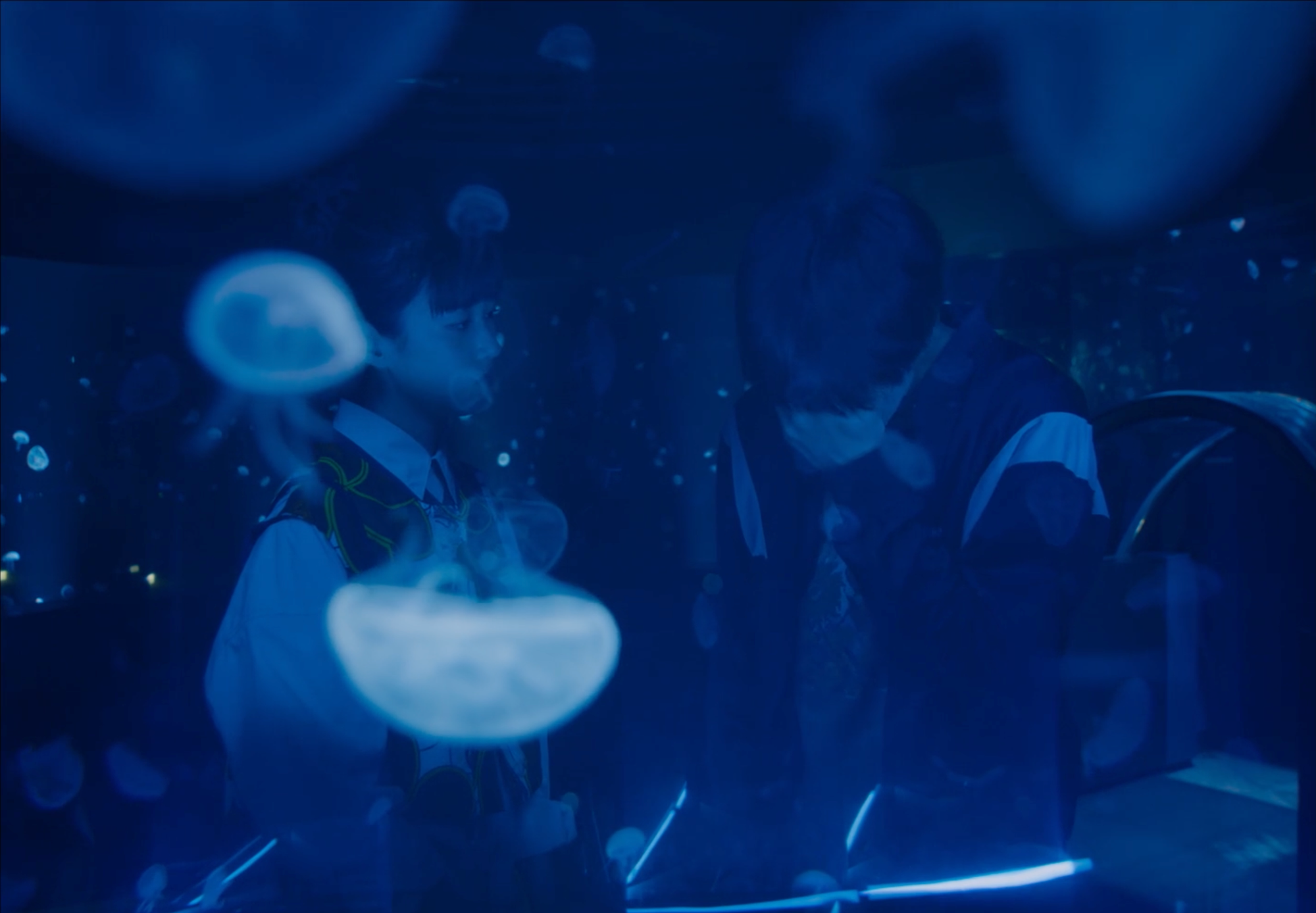
At one point in their night together, Konishi delivers a long monologue about his grief over his grandmother’s death, which Ohku shoots from the other side of a big aquarium, at night so everything has an eerie, purplish glow, with jellyfish floating around the actors heads as Konishi talks and Hana listens. This is about as far as she pushes the supernatural in the film, unlike the more fanciful breaks from reality in Tremble and Hold Me Back. Gradually, it becomes apparent that this is more of an actor’s film, with the structure revealed as revolving around three major monologues. The first is from Hagiwara, and the third from Kawai (which Ohku films in extreme close-up near the conclusion of the movie). The middle one, and by far the best, I think, both in terms of performance and in the way Ohku films it, is delivered by Ito Aoi, who plays Sacchan, a girl who plays guitar in a band and works with Konishi as a night janitor at a small spa. Her rambling, awkward confession of love is heart-breaking in its discomfort, and Ohku holds unbearably on Ito’s performance, framed from a distance on a night-time street, only occasionally cutting away to Konishi’s stunned blank expressions. It’s horribly painful, funny, and sweet, the most moving expression of unrequited love since Yamada Naoko’s Liz and the Blue Bird.
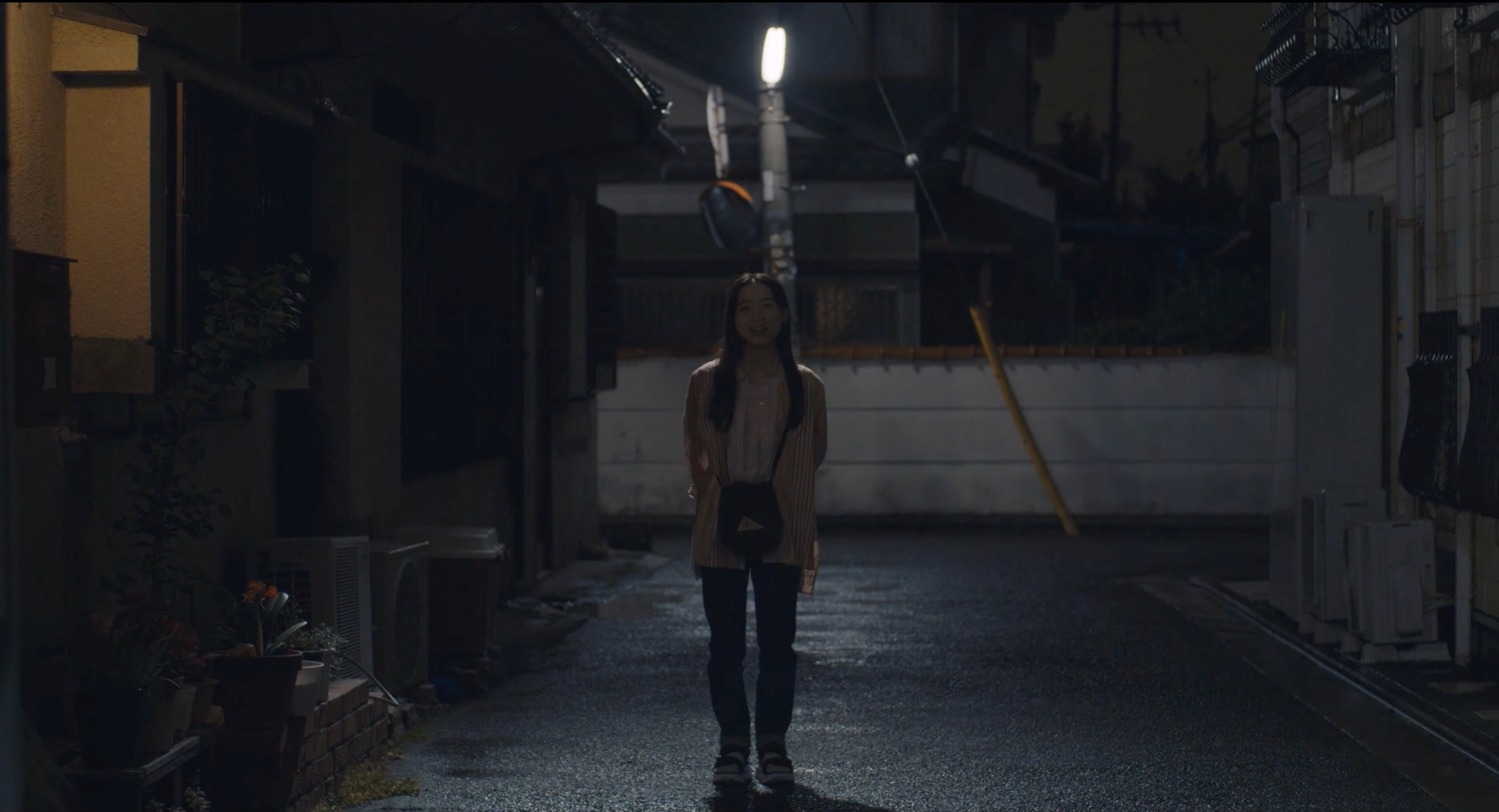
Vastly less verbal is Michimoto Saki’s See You Tomorrow, which also follows a group college students through some romantic trials, but is much more about mood and work than it is quirks and pop songs. Tanaka Makoto plays Nao, a photography student who is more dedicated, and more talented, than her peers at her art school. She goes everywhere with her camera, taking pictures on the streets whenever inspiration strikes. She’s dating a fellow student, but her work comes first, which he fully realizes, though it certainly makes him sad. They have a handful of other friends, each of whom, as they near graduation, has somehow to come to terms with the limitations of their talent and work ethic in the light of Nao’s abilities. It’s not quite a Mozart-Salieri dynamic, she isn’t that kind of other-worldly artist, but it’s somewhere in the neighborhood.
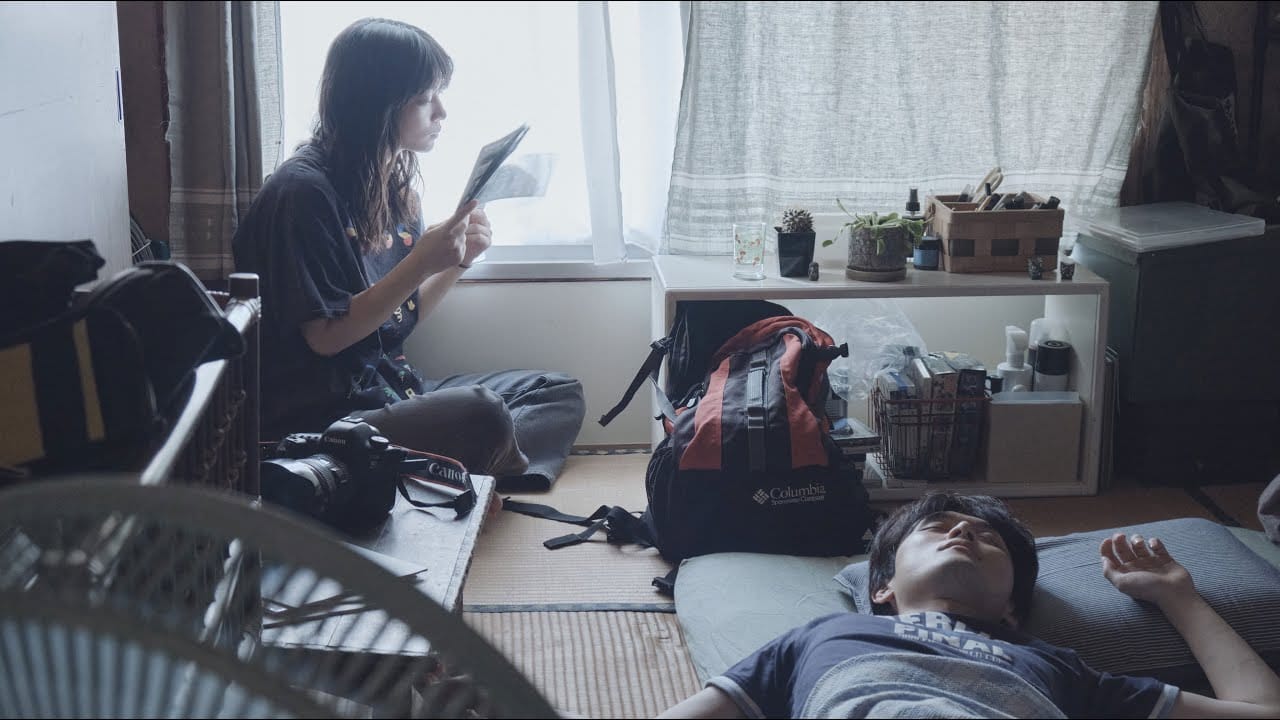
For a debut film, Michimoto’s control of tone and patience in building out her ensemble not with quirks but with genuine insight into personality and friendship dynamics is unusual. Befitting the milieu of photography students, her emphasis is on image and composition, and the mood she creates is one of quiet unease, the uncertainty of youth entering adulthood, the realization of one’s own limitations, and the narrowing horizons of one’s future. But there’s a sweetness to the bitter as well, a recognition of common humanity and connection on everyone’s part that’s far from the alienated hero and heroines of She Taught Me Serendipity. It’s a very promising debut, anchored by a wonderful performance from Tanaka, whose big expressive eyes (whether behind a camera or not) control every scene.
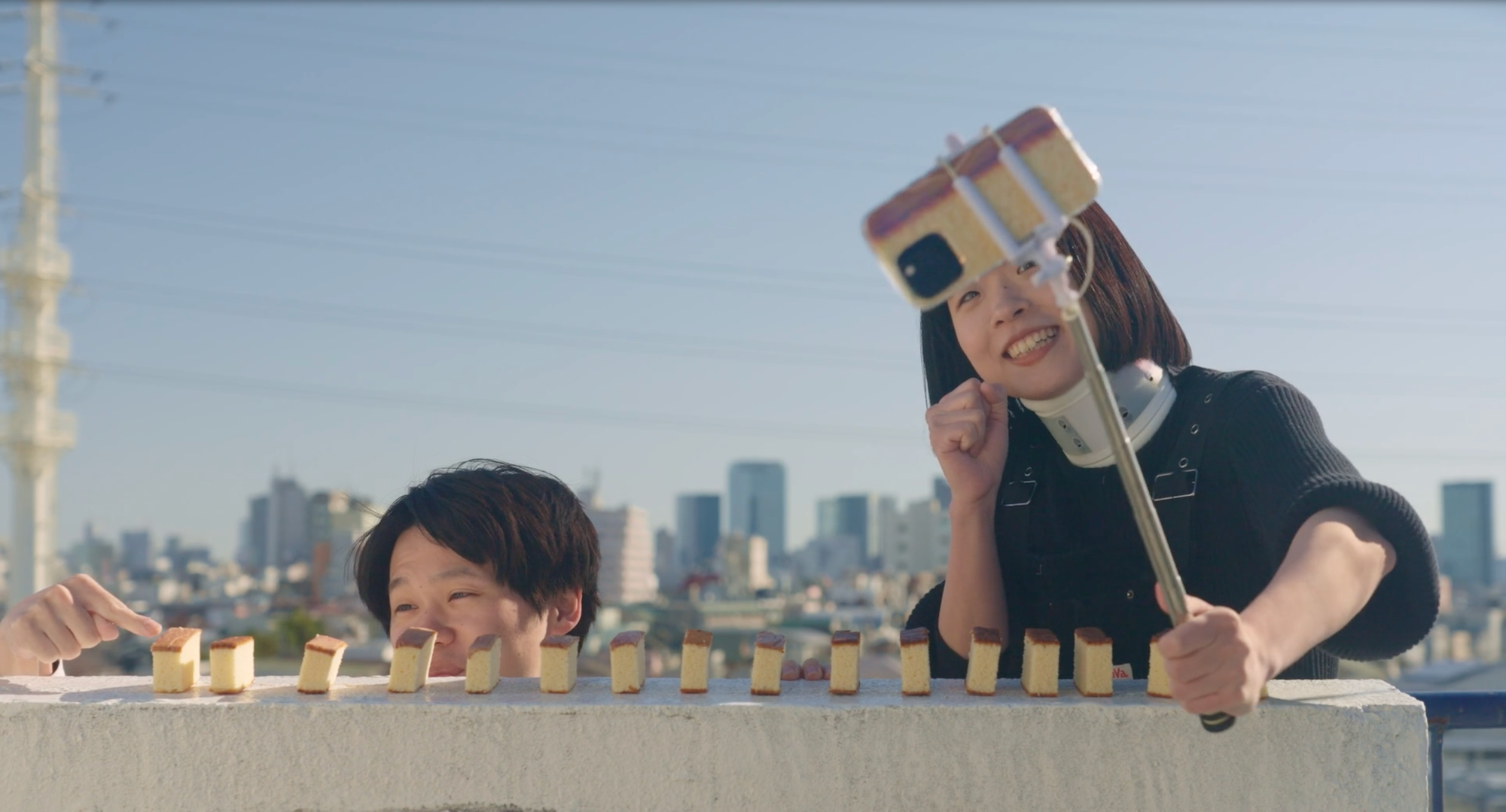
Also playing in the Next Generation program is So Beautiful, Wonderful and Lovely, which couldn’t be more different in tone. Okawara Megumi writes directs and stars as a young woman who photobombs the wedding of the man she’s in love with. Running away with his photographer’s camera, she crashes into a pile of Japanese sponge cakes (“castellas”) and spends the rest of the movie wearing a neck brace. She also hallucinates a version of her crush, who also takes the form of a castella and appears to us as the same actor, but with a cake glued to his shoulder. She gets a job at a convenience store full of weirdos and tries to come to terms with her failed romance.
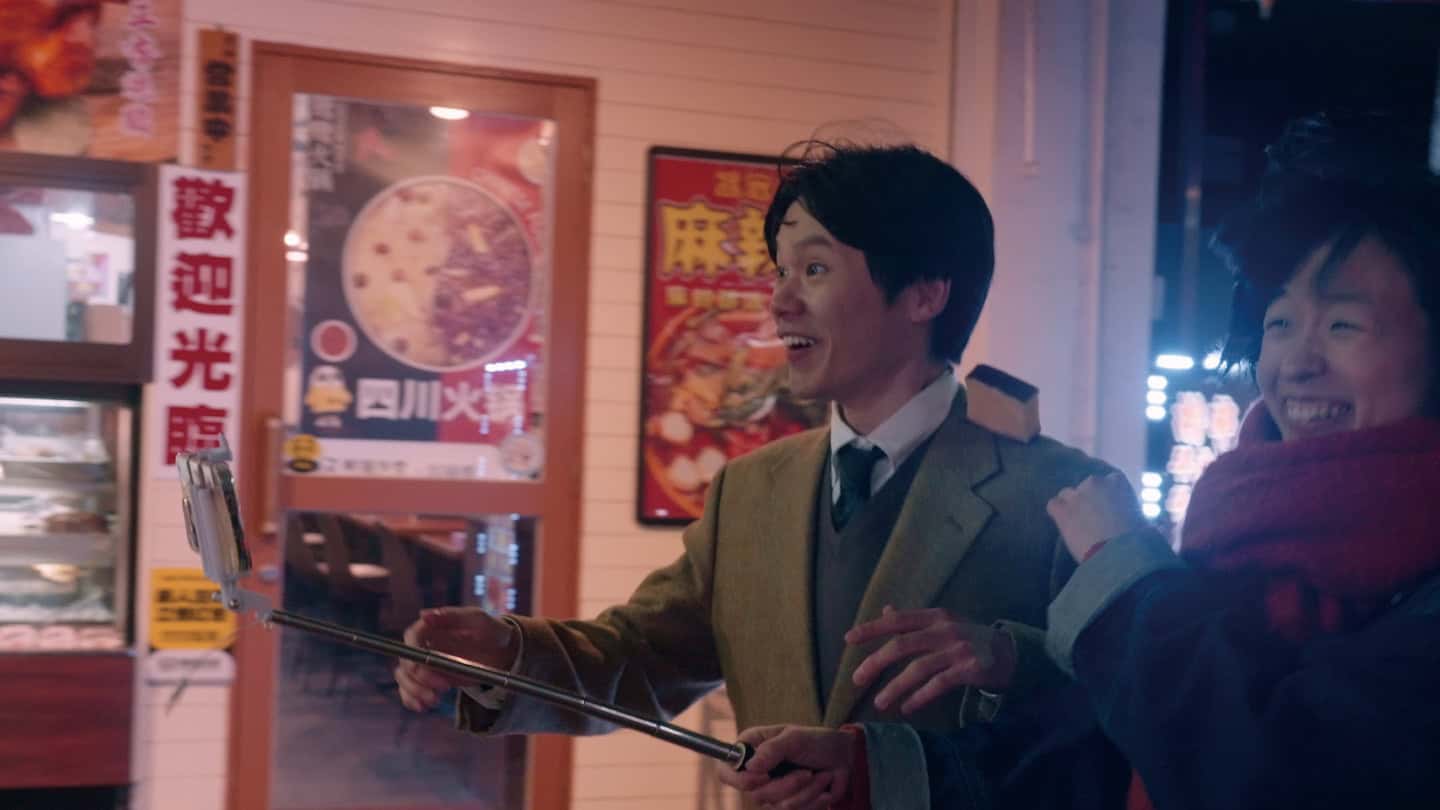
Okawara is relentless in piling on quirkiness, spending the first half of this 67 minute feature jumping from one oddity to another, such that the enforced cuteness becomes first exhausting and then increasingly desperate and disturbing. Ohku kind of touched on this in Hold Me Back, where the heroine’s quirk is that she hears voices, but ones that seem at times to be rather hostile, pushing us from the realm of cute rom-com to portrait of a woman with very real mental health problems. Okawara seems to be heading in a similar direction, as her heroine becomes increasingly depressed and exposes the fanciful dreams of her coworkers as pathetic attempts at denying reality. But she ultimately backs away from this dark heart of the slice-of-life genre, giving us a more hopeful and conventional ending, where she gets to come to terms with reality yet still keep her imagination alive.

Much more established is director Ugana Kenichi, whose The Gesuidouz is, like See You Tomorrow, a look at young artists at work. The eponymous punk band is struggling: we see one of their club performances where only two people are in the audience—one who really digs it, and the other who sits at the bar bored, throwing plastic cups at them. Their manager can’t sell their last album (titled “Toxic Avengers Infinity War”) and returns to them boxes of remaindered CDs. The problem is that their songs aren’t very good (the one they play in the club is a bunch of random noise punctuated by the lead singer screaming the titles of her favorite horror movies), so the producer sends them to live on a farm for a year. The idea is they work on the farm, don’t have to pay for anything (because the depopulated countryside needs young workers), and try to write a good song.
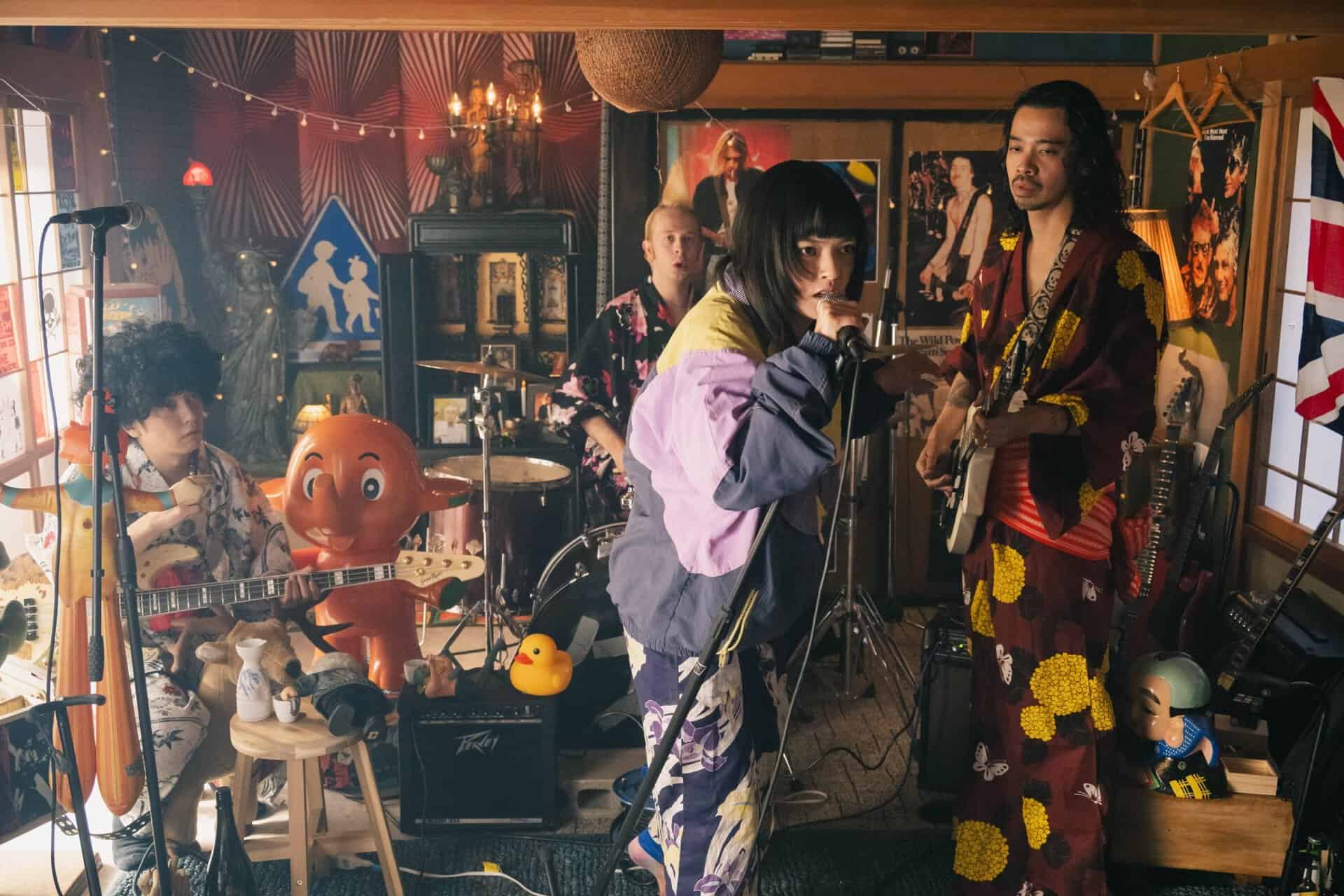
Once on the farm they meet a nice old woman (“How nice of you to come to this shithole!” she greets them) who doesn’t understand their music at all, but likes it anyway. They gradually get to work writing the song, and this takes up the central third or so of the movie. The process is: the band (guitarist who love bean cakes, bassist who wears a wig and is smitten with the only girl in town (who looks a bit like Izawa Saori (update: since I wrote this, more detail cast lists have been published and this is indeed the Baby Assassin herself)), drummer who is a tall white guy with a mohawk (indie producer and Lloyd Kaufman assistant Rocko Zevenbergen) sits in place with their instruments in hand while singer/writer Hanako stalks around the small room, almost coming up with ideas and then discarding them, until finally she steps to the microphone and says something like “I want it to sound like something Bach would have written over drinks, after watching Braindead” whereupon inspiration seizes one of the band members and they start playing their part (in this case it inspires Rocko’s drumming). This process repeats with the other members, and Hanako writes the lyrics by furiously calligraphing characters on a big piece of paper and then throwing them away when they aren’t quite right (occasionally she hears an inspiring koan mouthed by their adopted dog, John Cage). The result, after all this painstaking and hilarious effort, is a masterpiece of a song that earns them worldwide acclaim. But then, the twist: they have to write a second song.
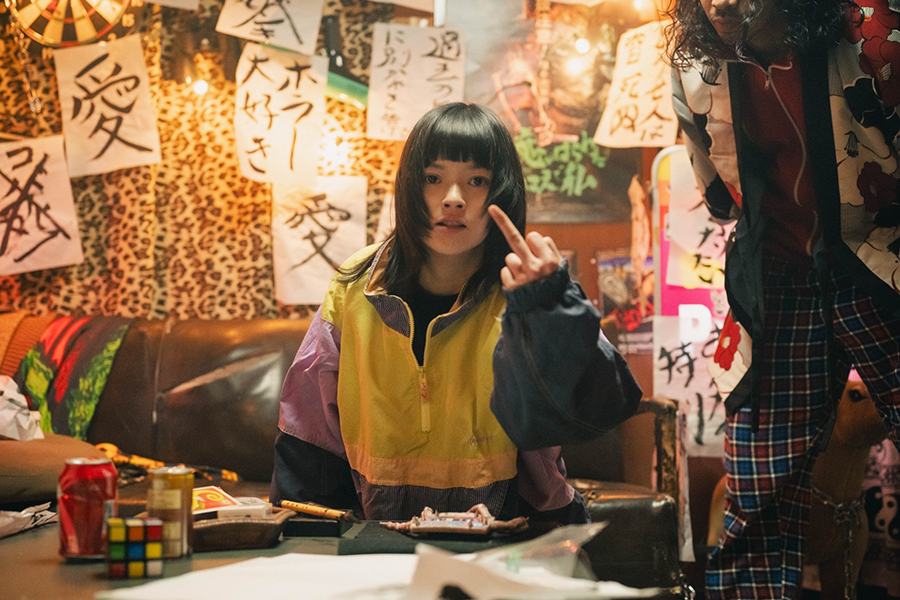
It’s here that one might say Ugana has run out of ideas, as the process of writing the second song is basically identical to that of the first. One joke, beaten into the ground. But isn’t that the point? That the whole absurd process of artistic creation is never-ending, always unsatisfying, always mysterious, and ultimately, a little boring? None of that makes it any less magical, or any less necessary. As the old woman says to Hanako, in what might be a rallying cry for outsiders artists everywhere, "It's hard to understand what's good about your songs, but it's amazing to be able to create something that others don't understand at all." The Gesuidouz is a delightful film that even when it gets repetitive is never less than charming. The cast helps tremendously, all wide-eyed and open-mouthed wonder at a world none of them quite fit into. Natsuko is electric as Hanako, the best punk rock girl we’ve had on film in years, if not since PJ Soles in Rock n Roll High School, ablaze with nervous energy, the need to create manifesting itself in twitches and screams and wild, unpredictable movements and a total inability to eat cake with dignity. Hanako, like the film, is openhearted in her embrace of low culture, and her performances as both writer and singer fully embody the joy and agony of creation. She’s convinced that she’s a genius and that she’ll die at 27 like her heroes Kurt Cobain and Jim Morrison. I’ll agree to the former, and hope fervently against the latter.
